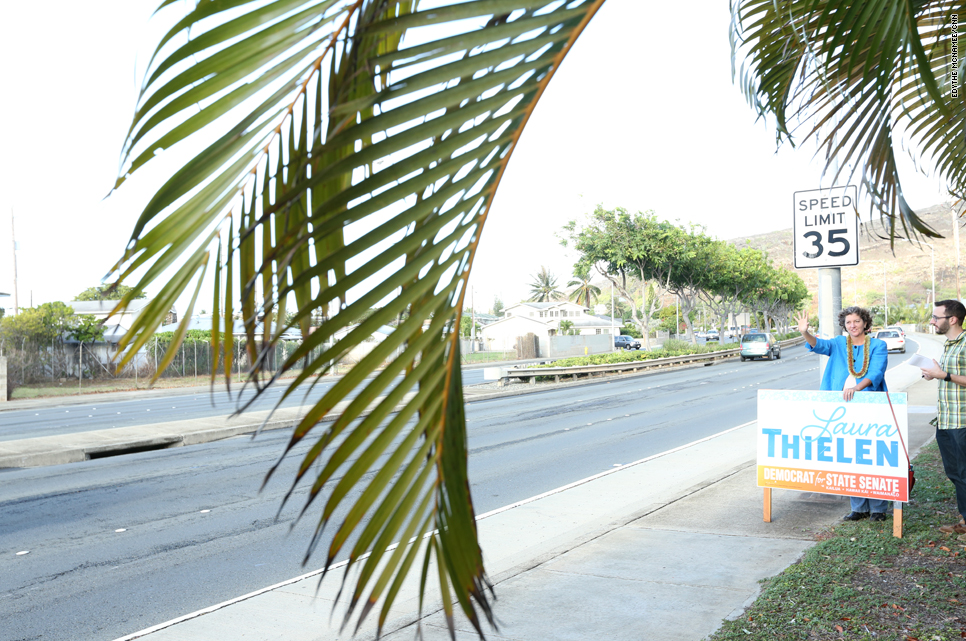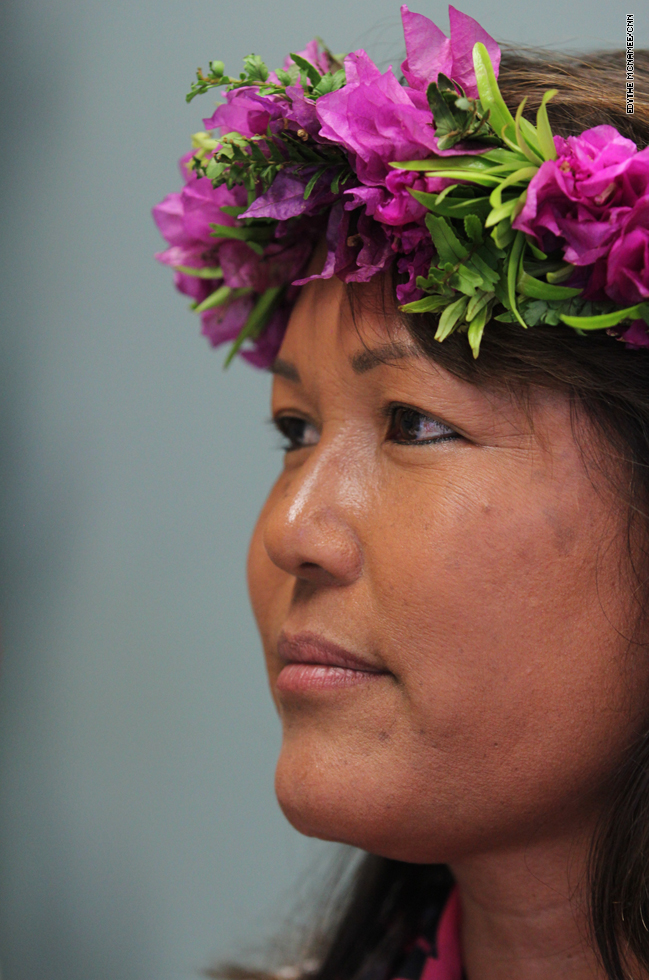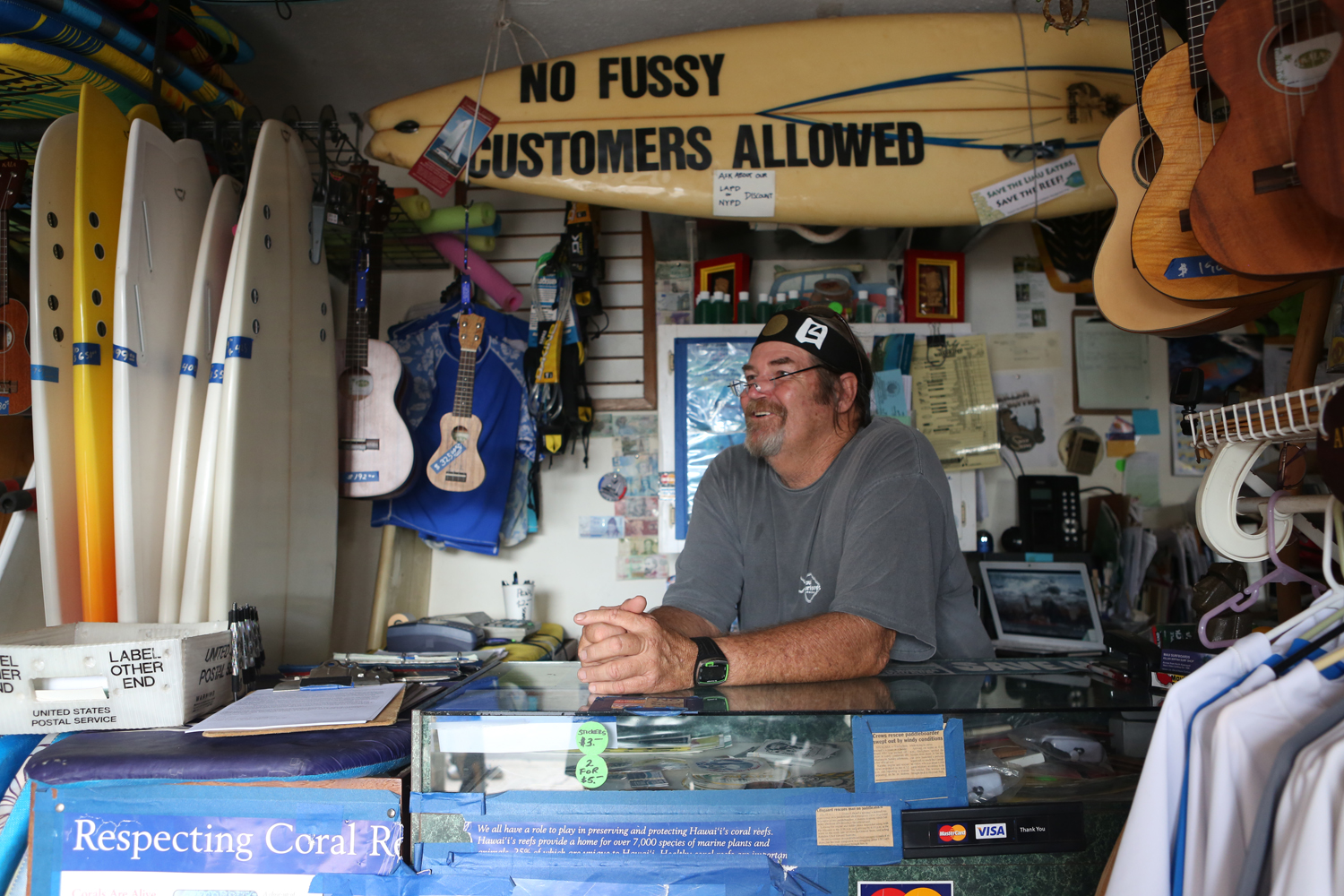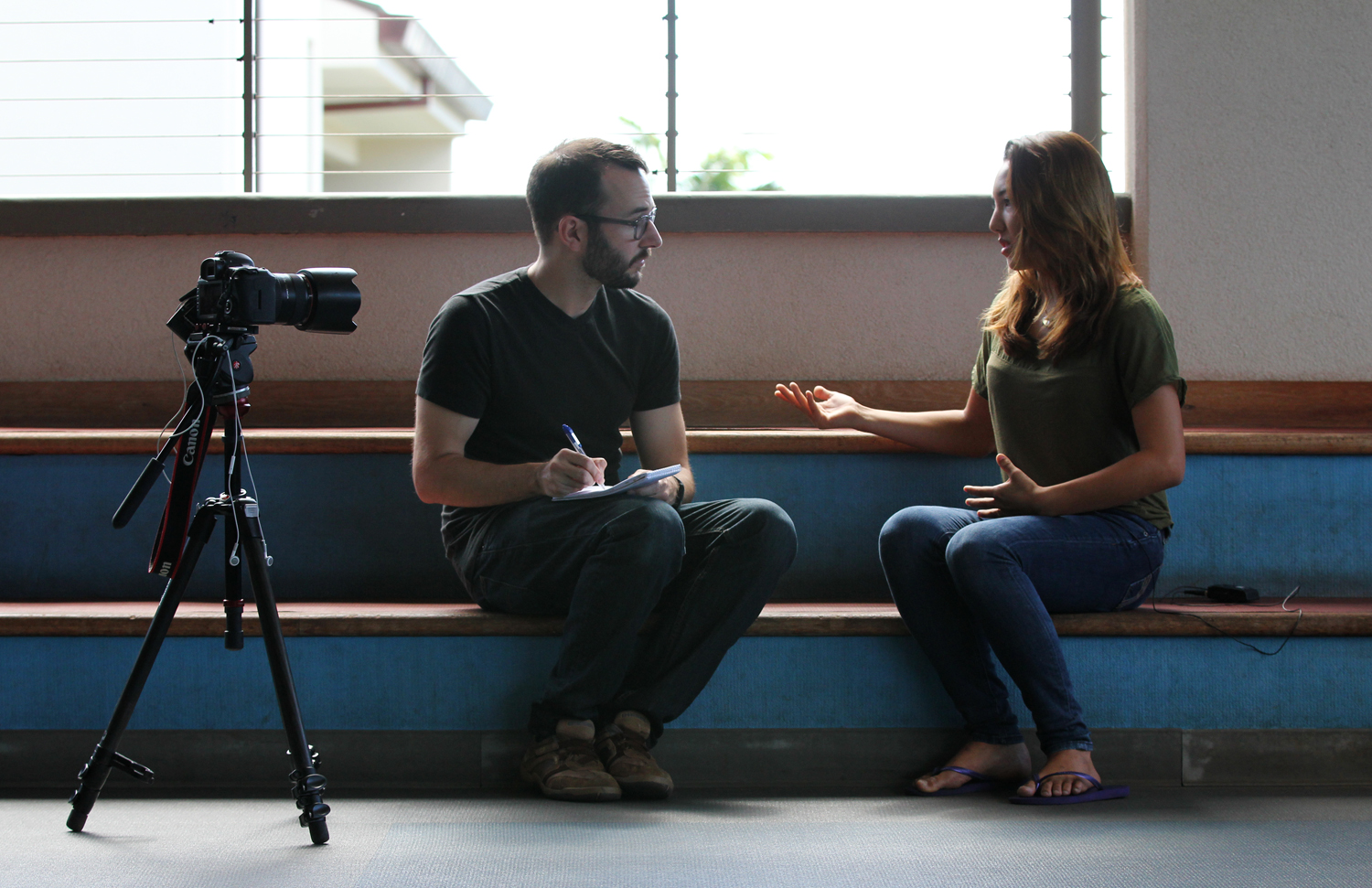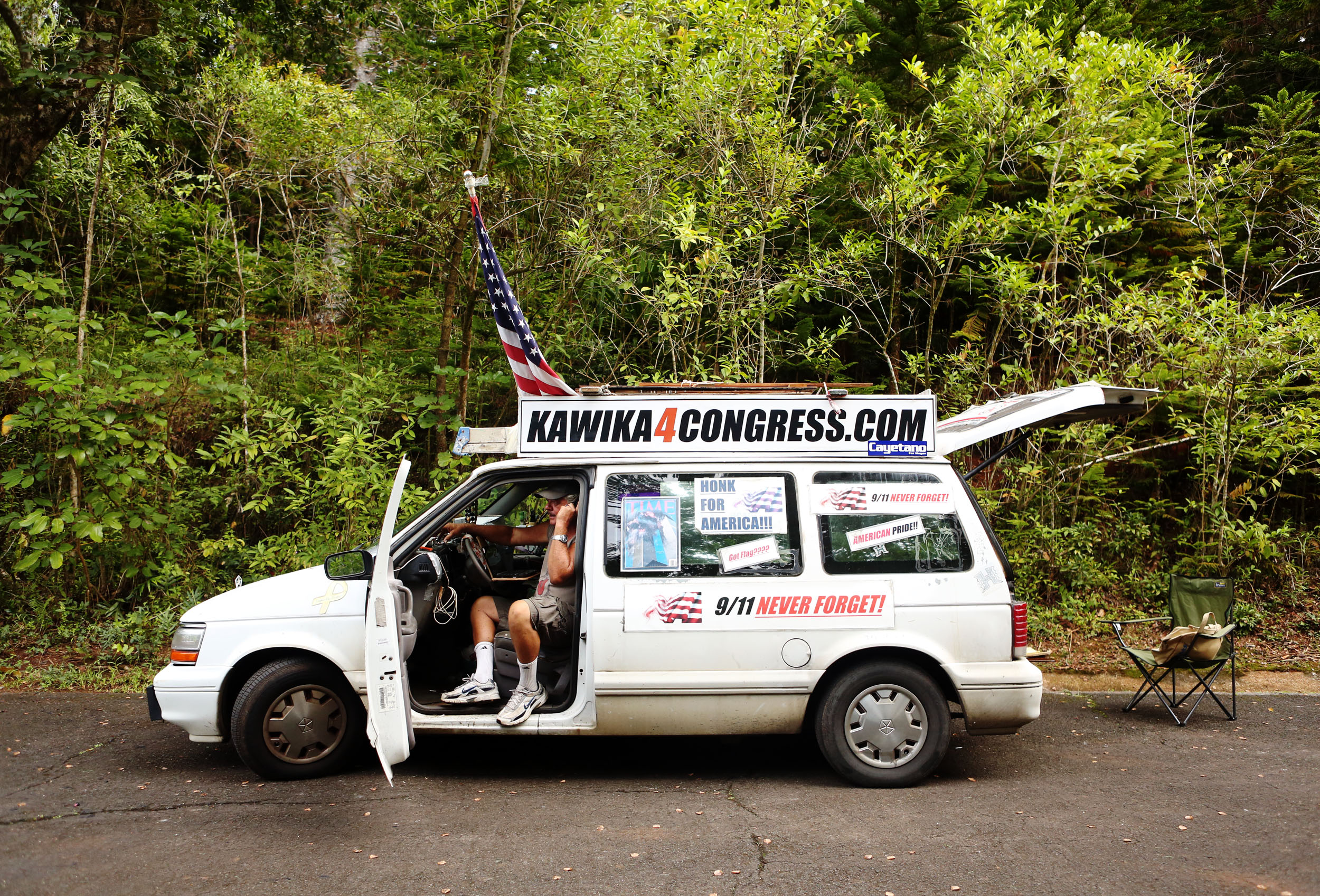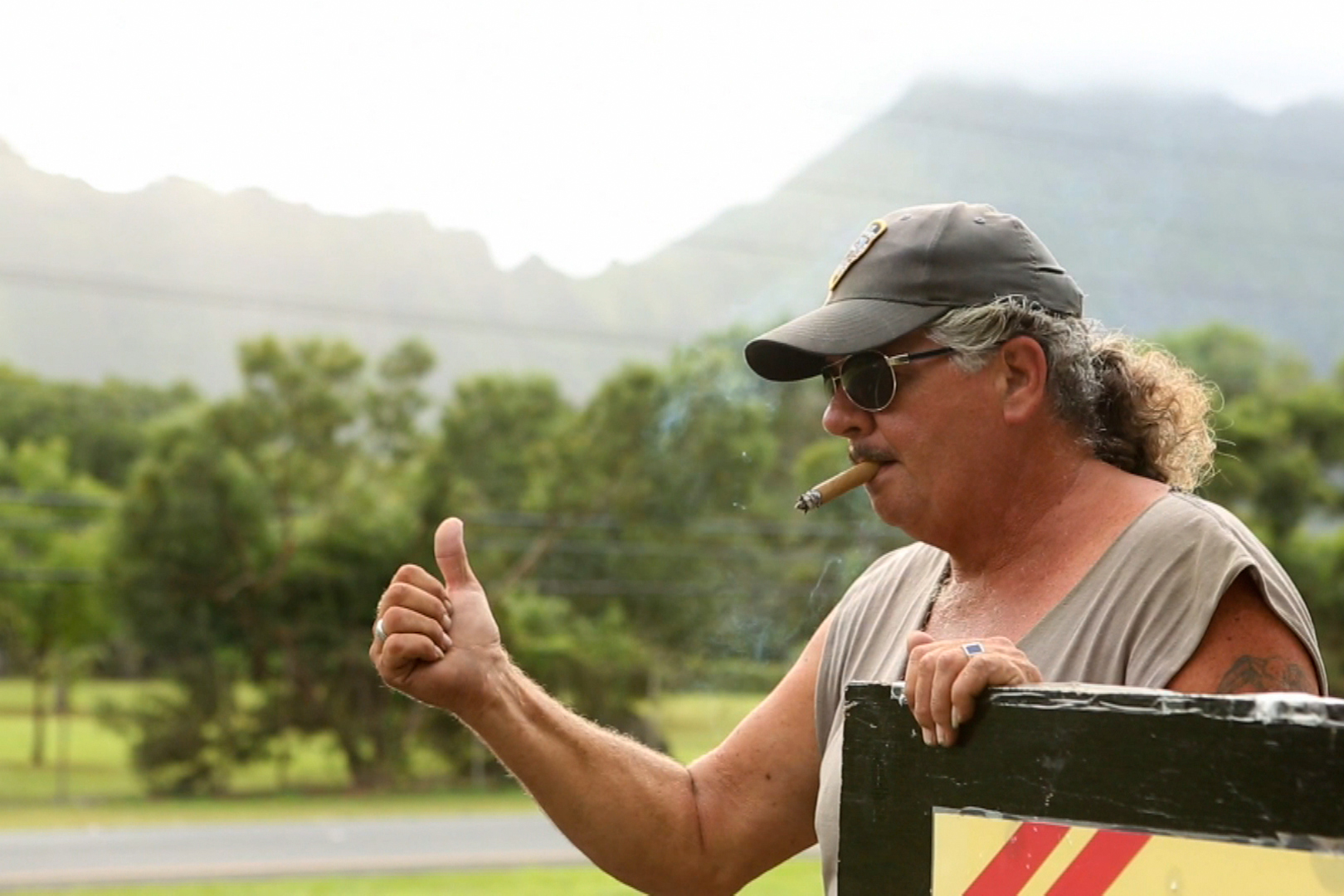CNN: Hawaii: The state that doesn’t vote
CNN
Published October 2012
In 2008, Hawaii had the lowest voter turnout in the U.S. How come? And can they Change The List for the 2012 election?
Reporter John Sutter and I traveled to Hawaii in the weeks leading up to the 2012 election to talk with residents about why they choose to vote or not, and how the election effects their lives.
The was the pilot story in a series called “Change The List.” (A series that was inspired, somewhat, by a previous story John and I produced called Mauritania: Slavery’s Last Stronghold, about the last country in the world to abolish slavery). The idea behind Change The List was to produce stories about a place or topic on the bottom of a list. During the reporting process we would try to understand why a problem existed, but we would also talk to experts about how the problems can be addressed. Then, upon publication, we would actively encourage our audience to participate by providing information about what they can do to help and drive change. Ultimately, the goal is to change the list. Because the series toed the delicate line between journalism and advocacy, these stories were considered opinion pieces, and were vetted and published according to those standards. This series, and this story in particular, was the first reported video opinion story produced by CNN.
Read the full story here.
John kept a Tumblr updated throughout our reporting, so our readers could follow along.
Other stories from the Hawaii reporting
Hawaii’s homeless candidate for Congress
Yo, Internet: Convince me to vote!
6 ways to boost Hawaii’s voter turnout
Hawaii doesn’t have to finish last in voting
47 of your pro-voting arguments
Where ‘Republican’ is a dirty word
Searching for the ‘Kings’ of West Maui
And, most importantly, did Hawaii change its place on the list?
Hawaii ties for last in voting (hooray!?)
- One Hawaii resident said the combativeness of politics just doesn’t “flow” in a state this beautiful.
- Hawaii has a ban on all billboards. That means absolutely no political billboards. So candidates for political office get their name and face out to the public by standing along the road and waving to commuters as they pass by. Hawaii is one of the four states that ban billboards. Alaska, Maine and Vermont are the other three states with billboard bans.
- Door to door canvassing with Kanu Hawaii in Oahu. The volunteers use Google maps because election software only shows where voters are located, not non-voters.
- Kelsey Amos of Kanu Hawaii dedicates weekends to encouraging new voters. She convinced Marlene Joshua to vote in November.
- Kanu Hawaii is a non-partisan group whose goal is to increase voter turnout.
- Hawaii has a ban on all billboards. That means absolutely no political billboards. Instead, lawn signs clutter busy intersections.
- Sam Slom is the only Republican state senator in Hawaii.
- Elle Cochran, now a Maui county councilwoman, never voted until she ran for office.
- Surf shop owner Wayno Cochran tries to convince surfers to care about environmental issues.
- Hawaii has a ban on all billboards. That means absolutely no political billboards. So candidates for political office get their name and face out to the public by standing along the road and waving to commuters as they pass by. Hawaii is one of the four states that ban billboards. Alaska, Maine and Vermont are the other three states with billboard bans.
- Jason Duncan’s social studies class learns the importance of civic participation.
- Protecting Honolua Bay near Lahaina has become a major political issue in Maui, even for surfers. The district had the lowest voter rate in the whole state for the primaries, but the issue of Hololua Bay seemed to have people more concerned about their vote.
- The county clerk provided a list of all registered voters in a particular district. That list can include where a person lives and whether he or she voted in a particular election. A randomly pulled sheet contained all of the people with the last name King who live in Maui.
- Kawika Crowley is the Republican candidate of one of Hawaii’s seats in the U.S. House. He lives out of this van.
- Crowley’s van serves as his home and campaign headquarters. He fell into homelessness because of the recession, he said. He works as a handyman.
- The driver’s and passenger’s seats are his campaign’s “communication center.” he keeps a copy of the U.S. Constitution on his dash.
- Crowley is a Republican in a state dominated by Democrats. Some consider him a joke candidate. Others say he could revive interest.
- Crowley got into politics aiming to partially repeal a ban on smoking in bars in Hawaii. Tobacco built this country, he said.
- Crowley’s main method of campaigning: standing by his van on the highway and giving the thumbs-up sign to passing cars.

